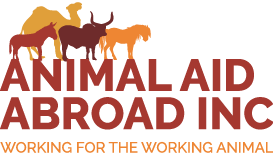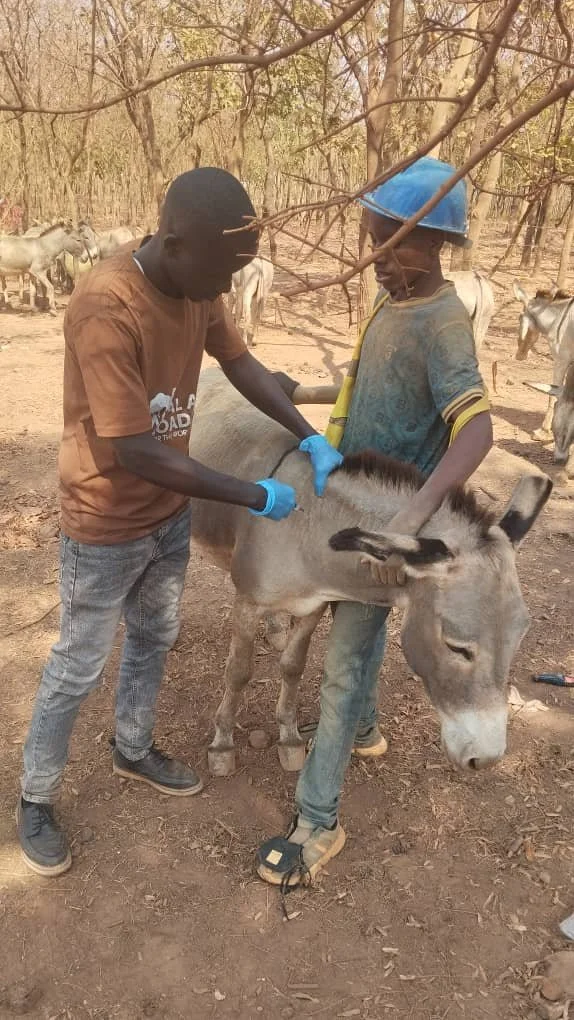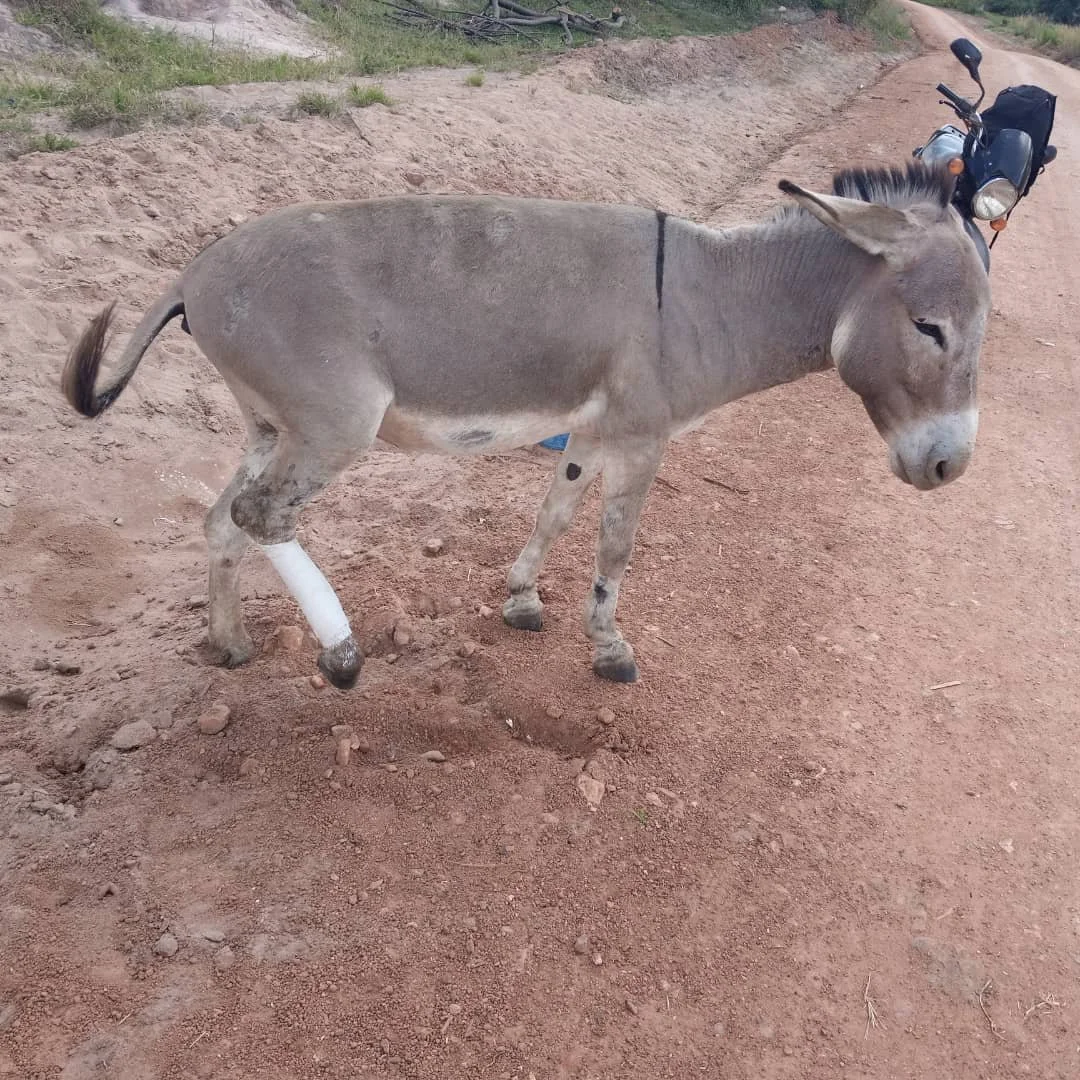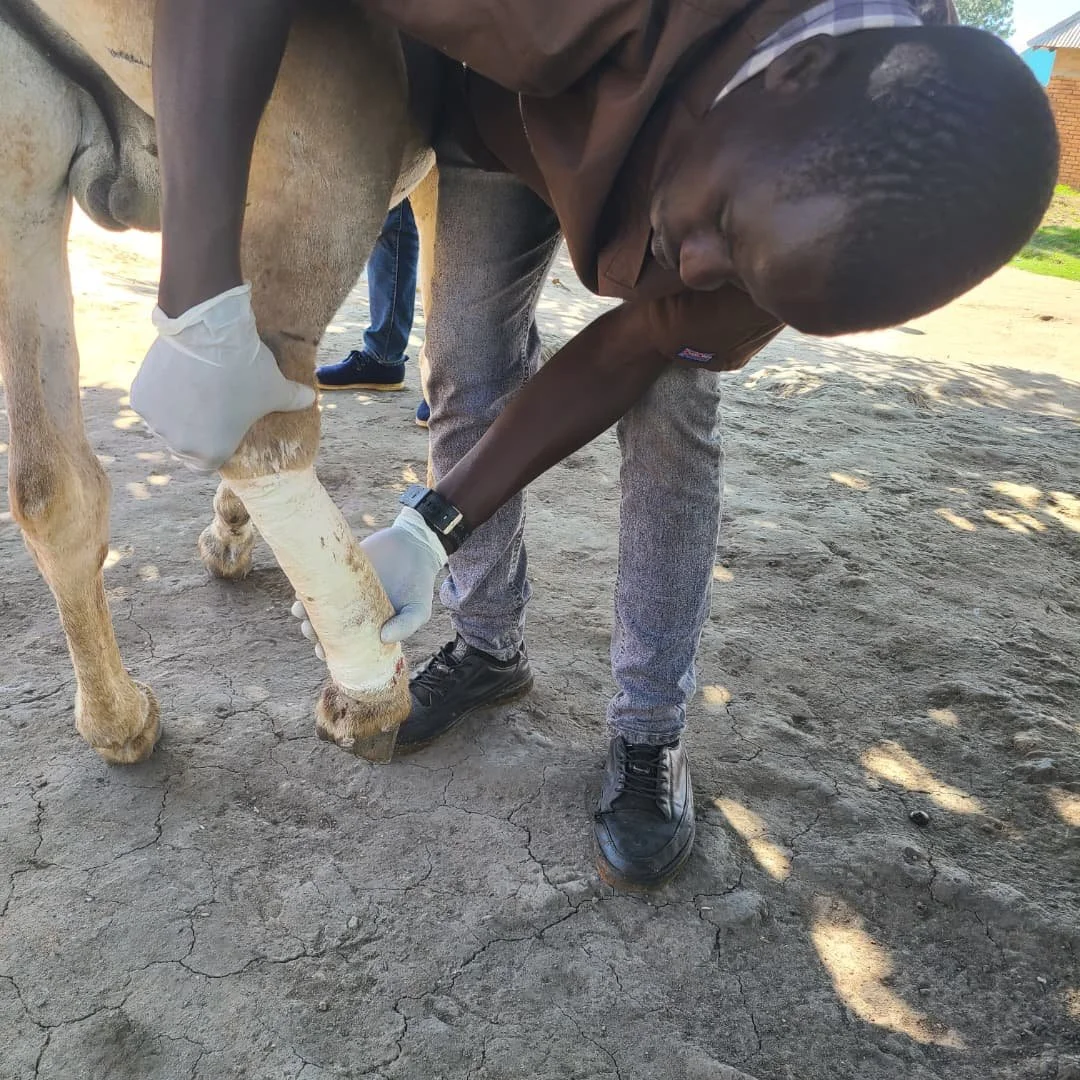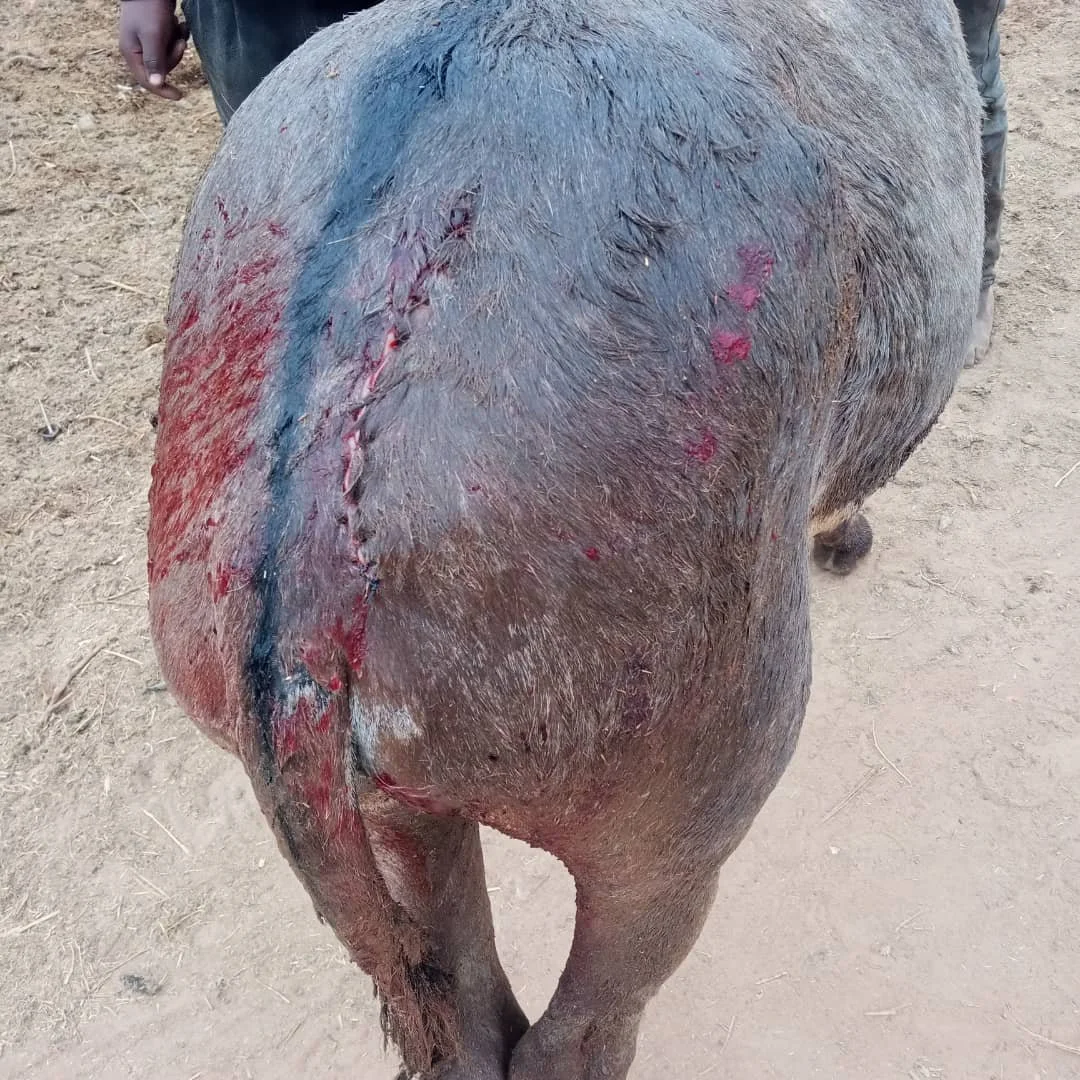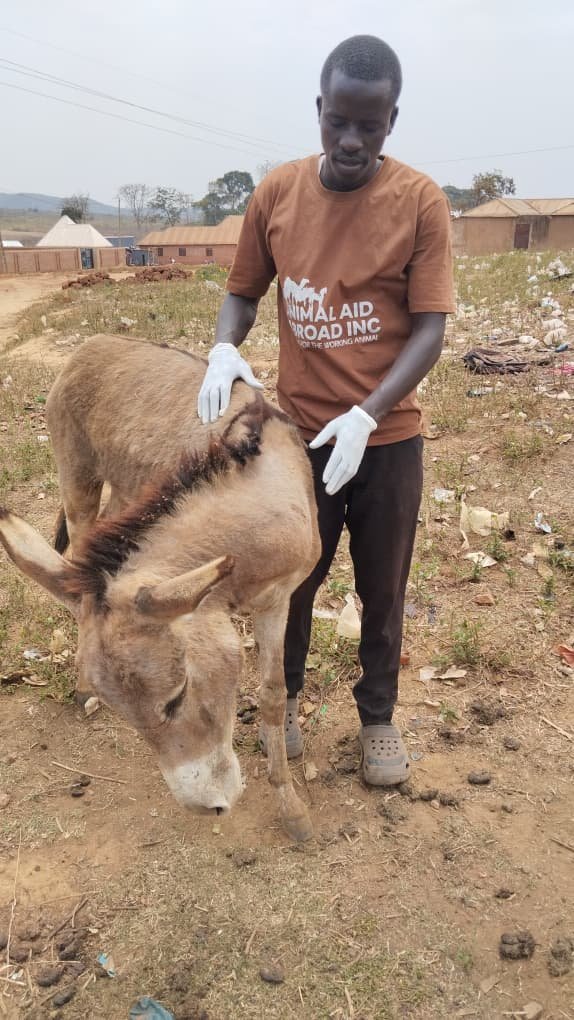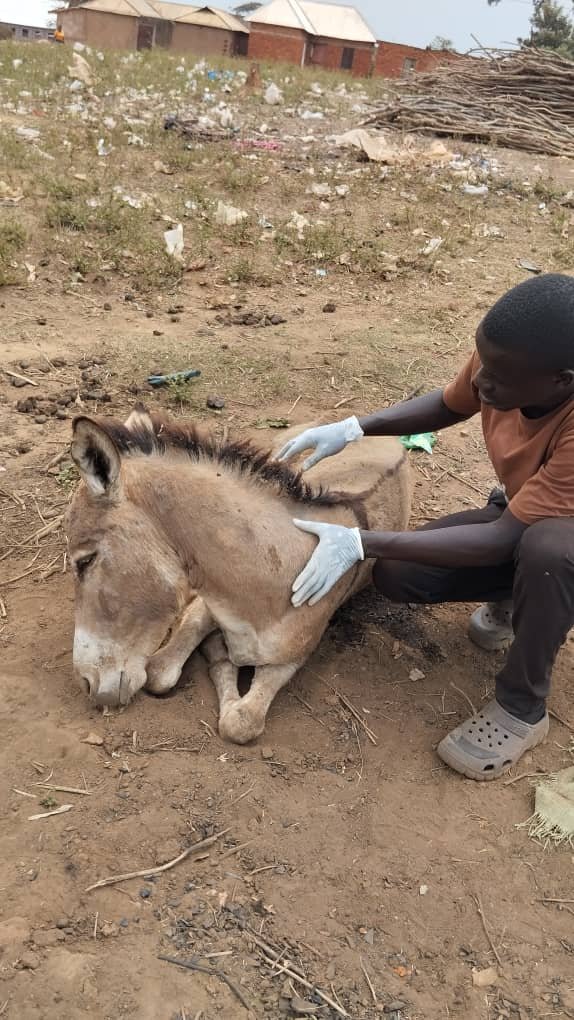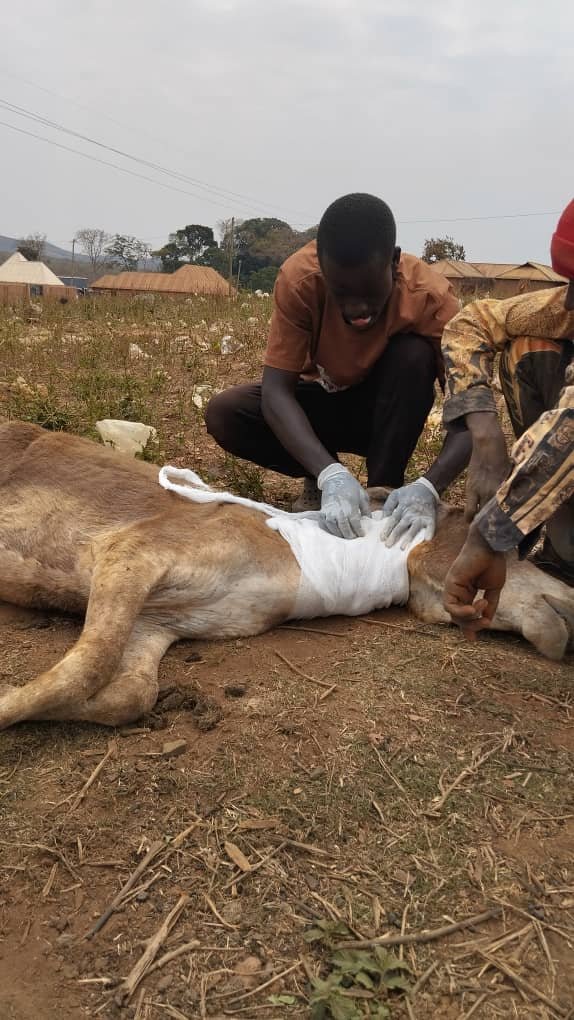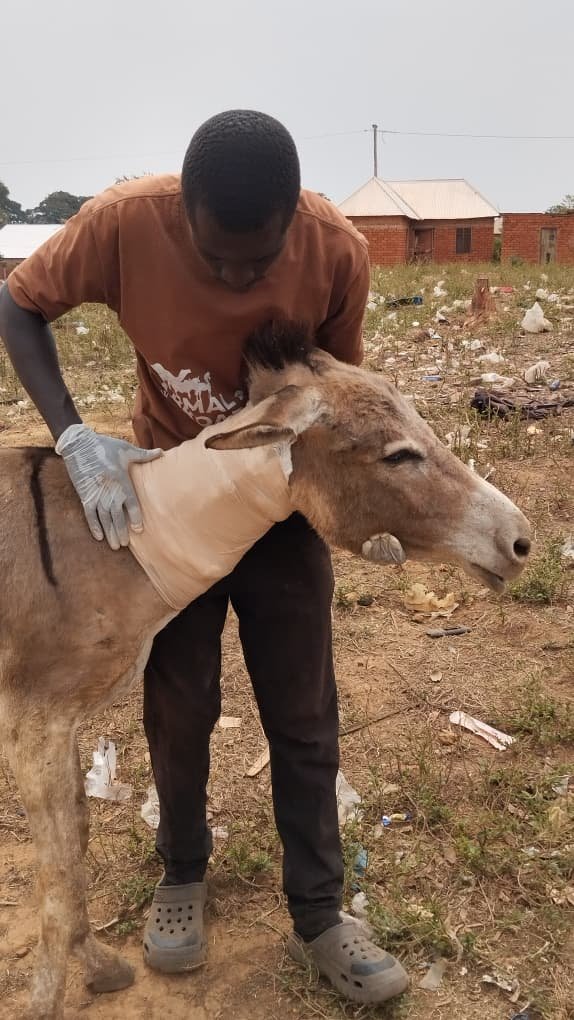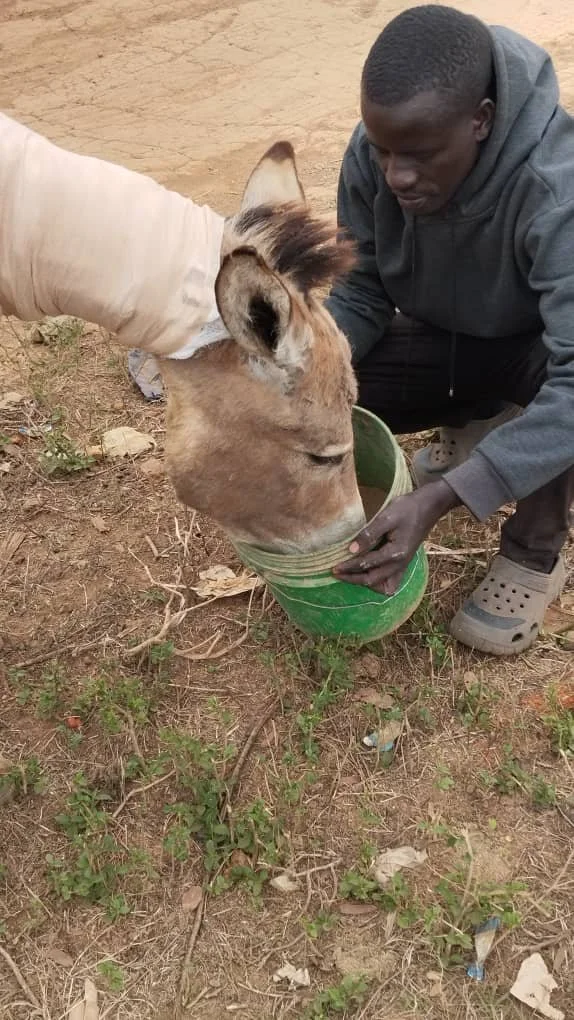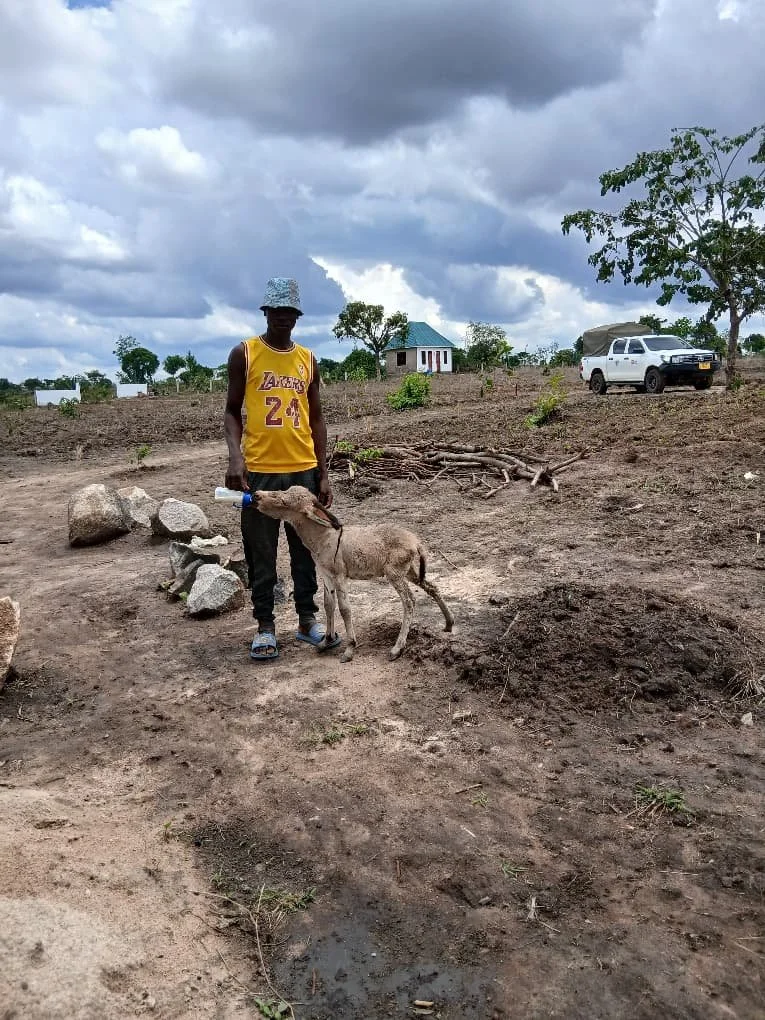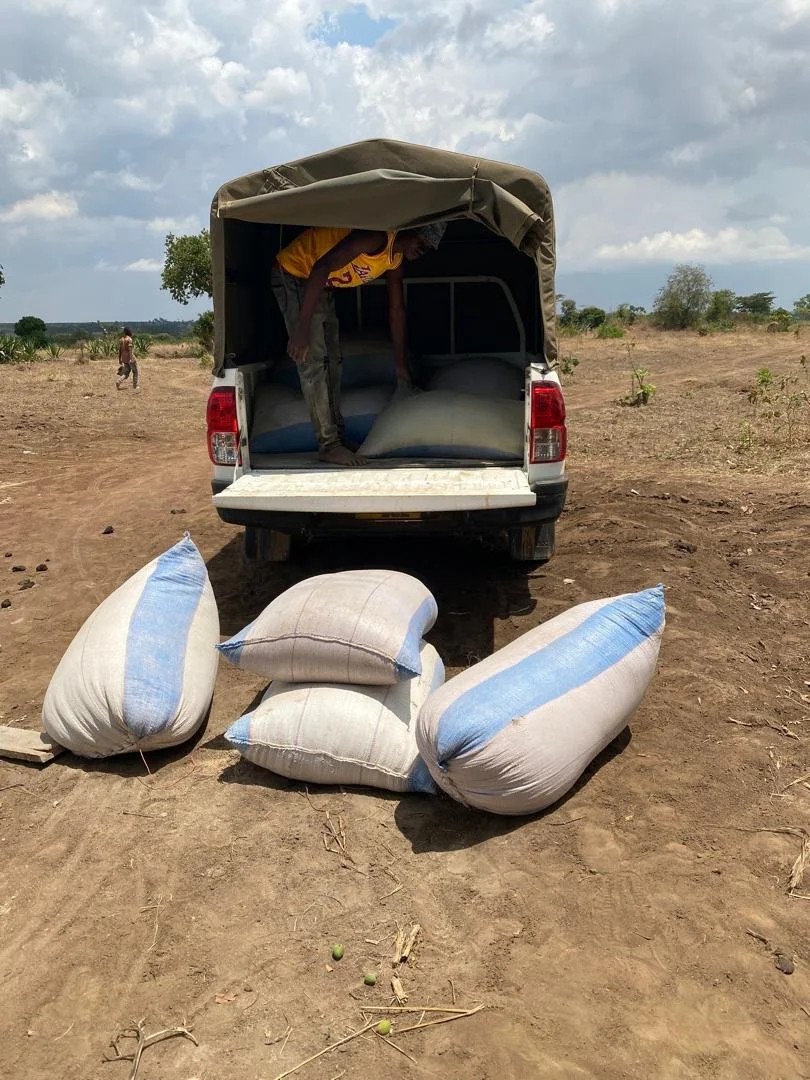Transforming the Lives of Donkeys Working in Gold Mines
With you by their side, the team at Lake Zone Animal Welfare Organization (LAZAWO) are continuing their dedicated work assisting donkeys in desperate need. They are particularly focused on helping donkeys working in treacherous gold mines in Geita, Tanzania.
See how your kind support made an enormous difference in the lives of donkeys last month:
1. October Summary
Our team focused its treatment efforts on the hardworking donkeys of Geita’s gold mines. We are there for them when they endure pain or suffering due to their daily labour across Nyarugusu, Stamico, Nyaruyeye, Lwamgasa, Magenge and Mgusu.
Through daily field visits and monthly mobile clinics, we uncovered hidden suffering including wounds, abscesses, respiratory, integumentary and digestive conditions. We also encountered hidden labour injuries and a neck dislocation, amongst other ailments.
Thanks to the timely care and generous support of Animal Aid Abroad (AAA), these loyal animals no longer endure pain unnoticed or have their struggles unwitnessed.
With AAA’s help, we have provided life-changing interventions. These included treating injuries, offering expert guidance on humane handling, educating communities, and distributing padded harnesses to ease donkeys’ suffering.
It is through these efforts that hope is restored, suffering is relieved, and the dignity of these tireless animals is honoured. This is a testament that together, we can transform the lives of those who silently give so much.
Throughout October, every wound healed and every step made more comfortable reflects our team’s and AAA’s commitment to improve working donkey welfare in Geita.
2. Veterinary Conditions
Throughout October, 411 hardworking donkeys were attended to with different medical conditions. Each case reflected a story of their endurance and struggles during their daily labour.
Common issues seen included wounds, mange infestation, abscesses, eye infections, hoof-related lameness, enteritis, respiratory infections and equine ptyalism. We also sadly came across a traumatic neck dislocation in Mgusu.
With your generous support, we attended to every donkey with appropriate and timely veterinary care, including wound management, surgical drainage, and supportive treatments and medications. The team also engaged in owner education coupled with follow-ups to ensure all donkeys received ongoing care.
Another important feeding program was carried out in Mgusu. Here, donkeys have faced food scarcity due to prolonged drought. The prognosis for most animals is now favourable, reflecting the positive impact of timely intervention.
Healing and helping working donkeys in these mining areas is not only our success, but also yours. Your devoted, tireless support helps us to treat and rescue these donkeys. Your support encourages us, and our partnership highlights the vital role of compassion and care in easing the burdens of these working donkeys.
3. Follow-Up Activities
3.1 Mashabala with a hind limb fracture has now fully recovered
In August, Mashabala - a loyal and hardworking donkey - faced one of the toughest challenges of his life after sustaining a painful hind limb fracture. His leg was carefully immobilised with a plaster of Paris cast, and he began a long journey of healing under our close supervision, compassion and daily care.
Through September and into October, our team continued monitoring his progress with unwavering dedication. Every day brought small signs of hope, steadier steps, and a brighter and gentler bray that indicated he was getting better.
Today, we are overjoyed to share that Mashabala has fully recovered. He walks with confidence once again, his gait strong and natural, a symbol of resilience and care.
This heartwarming recovery was made possible thanks to the generous support of AAA, as your commitment ensured Mashabala received the rest, attention, and protection he needed. Because of you, he has returned to his normal, pain-free life.
3:2 Sajo, who was injured by an ore-loading spade in Magenge, has now recovered
In September, Sajo - a loyal working donkey from Magenge - sustained a devastating and painful injury while performing his daily duties at an ore-loading site. During a shift change, a loading attendant accidentally threw a spade, which struck Sajo in the gluteal area and caused a deep wound.
Thanks to your generous support, we promptly gave Sajo safe and proper wound management under sedation. The injury was thoroughly cleaned, carefully sutured, and supported with antibiotics and effective pain management.
Throughout October, our team conducted several follow-up visits to monitor Sajo’s healing progress and manage his pain. This continued care was made possible through your kind support - especially the AAA-sponsored vehicle, which allowed for efficient transportation, and funding for essential medications.
Sajo’s case highlights both the vulnerability of working donkeys and the vital importance of timely veterinary intervention. His steady recovery stands as a true testament to the positive impact of community care and your support in safeguarding the welfare of hardworking animals like him.
3.3 General Follow-Ups
In October, our team carried out follow-up visits for all donkeys previously treated across six gold mines. These visits were extremely valuable in reviewing the effectiveness of our treatment protocols - especially the different medications we used, and wound management techniques.
They also played a key role in strengthening our rapport with donkey owners, helping to reinforce the proper care practices we continue to promote within the Geita mining communities.
This continuous engagement demonstrates the impact of regular community interaction and prompt veterinary interventions in protecting the welfare of these hardworking animals. Encouraging feedback from owners, who have observed notable improvements in their donkey’s health, inspires our team to remain committed to serving these communities.
We deeply appreciate the generous support of AAA, whose partnership enables the LAZAWO team to deliver vital and compassionate care to these donkeys.
4. Training and Outreach
In October, we successfully conducted two monthly field clinics and community outreach sessions in Nyarugusu and Nyaruyeye. These sessions focused on humane donkey handling, assessment of donkey health in relation to their daily work activities, and appropriate feeding strategies. This included a special emphasis on feed supplementation during periods of scarcity to support working donkeys.
We also highlighted the importance of basic preventive healthcare and evaluated the effectiveness of the padded harnesses previously distributed. During earlier visits, some donkeys were observed without these harnesses, prompting a review of their usability and practicality. This feedback is guiding us toward developing a new harness design that can be more widely adopted by donkey owners and handlers.
During these clinics, 126 donkeys received veterinary care, treatment and welfare support. Additionally, 43 owners and handlers participated in training sessions covering best practices in donkey care and handling. Each owner received new padded collars, which are instrumental in promoting humane handling, reducing yoke wounds, and strengthening the community’s commitment to sustainable donkey welfare practices.
4.1. Impact of the clinics and outreach
With your generous support, lasting change is taking root in the mining communities. Through our monthly clinics and outreach sessions, donkey owners are increasingly adopting humane care practices and recognising the importance of their animals’ wellbeing.
Encouragingly, the government is supporting LAZAWO in implementing donkey welfare practices. As a result, the number of overworked donkeys has dropped sharply, following the enforcement of rules that protect animals from overwork and inhumane treatment.
Improved harnessing has also brought remarkable results, as the use of padded or improvised cloth harnesses by many owners has greatly reduced painful sores and yoke wounds. With early diagnosis and treatment now available, most of these issues are being managed before they become serious. While the incidence of yoke wounds has declined, we recognise the need for a focused plan to eliminate them completely.
The LAZAWO team has earned strong community trust, creating a foundation for continued collaboration and lasting improvement in donkey welfare.
5. Case Study
5.1 Masanja’s story - from cruelty to care
We were called to Mgusu earlier last month by a local donkey attendant called Simon. He had found a helpless donkey lying on the ground, unable to stand. He feared the animal had been cruelly struck on the neck with a hard object. The donkey, who was later named Masanja, had suffered a severe neck injury, which was tragically inflicted by human cruelty.
When we arrived, Masanja was lying helpless, his neck painfully twisted, his body weak and trembling. Moved by his suffering, our team acted swiftly by administering sedation, carefully realigning his neck, and securing it with splints and bandages to ease his pain.
The team could see he needed more than just medical care and needed to be brought to LAZAWO’s sanctuary. Thanks to the rescue vehicle donated by AAA, and the sanctuary built with the generous support of Network for Animals, Masanja received the treatment, safety and compassion he so desperately needed.
Today, Masanja has made an excellent recovery. His neck is straight once more, his spirit renewed, and he now grazes peacefully among his friends at our sanctuary. Once a victim of cruelty, Masanja now stands as a living symbol of healing, resilience and hope.
Because of your kindness, stories like Masanja’s can have a happy ending. Together, we can continue turning suffering into sanctuary and give every donkey the life they deserve.
6. Gaps and Challenges
Our veterinary activities during October continued to face several barriers. The persistent lack of laboratory tools for diagnosis and treatment remained a key constraint. We are, however, deeply grateful for your support and for the arrival of Dr Neil, who brought essential equipment including a microscope, GAG, stomach tube and ophthalmoscope. These tools are critical for enhancing the quality of veterinary services we provide.
During one of our field visits, our vehicle battery failed, necessitating the use of motorbike transport and external charging at a nearby station. Although this caused minor delays, we are closely monitoring the situation to assess whether the battery requires replacement.
7. Donkey Sanctuary Activities
In October, our sanctuary began receiving its first rescued donkeys. We successfully conducted rescue operations for six donkeys in varying conditions. Among them is Mulekwa, a young orphan foal who continues to receive special care and feeding.
We are extremely grateful to AAA for funding the construction of a laboratory and storehouse at our sanctuary, which is now nearing completion. Once finished, these facilities will greatly enhance our ability to diagnose illnesses and safely store large quantities of medicines and equipment.
Additionally, our rescue vehicle - funded through your kind support - has been invaluable in carrying out rescue missions and field visits. It allows us to deliver essential medical services to hardworking donkeys in the mining areas.
8. Acknowledgement and Appreciation
We are deeply grateful for your generous support in strengthening our diagnostic capabilities, which enables us to provide better services to the communities of Geita and their hardworking donkeys.
Through your kindness, these donkeys have received treatment, their hunger has been alleviated and their hope restored. We have brought them comfort and strength as they continue to labour tirelessly.
During the prolonged drought in Mgusu, the hardship faced by the Geita gold mine donkeys was severe. Your emergency funding for feed supplements has been a true blessing, saving these donkeys from extreme hunger.
With hearts full of gratitude, we sincerely thank Animal Aid Abroad supporters for your compassion and steadfast support. On behalf of LAZAWO and the entire Geita community, we extend our deepest appreciation.
